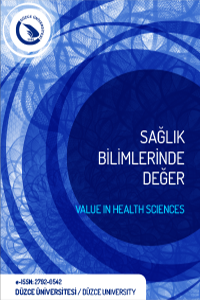Exploring the Functional Disability in a Community-Living Oldest-Old Population Living in Afyonkarahisar, Turkey
Exploring the Functional Disability in a Community-Living Oldest-Old Population Living in Afyonkarahisar, Turkey
This study has been carried out to determine the level of functional disability of the community-living Turkish oldest-old as well as to explore the factors that could have an influence on daily living skills. The study population consisted of 301 elderly participants older than 85 years old (85-110) in Afyonkarahisar, Turkey. A questionnaire set including demographic variables, and basic and instrumental activities of daily living (BADL and IADL) were used. The mean scores of basic and instrumental ADLs were 59 ± 30 out of 100 and 1.69 ± 1.89 out of 8, respectively. Significant interactions between demographic variables and levels of ADL were found. While being female or widowed/divorced displayed a significant influence on BADL disability, the determining factors associated with IADL disability included advanced age, being female or widowed/divorced, having low levels of income or education, and having more than three children. From the logistic regression analysis, women were seemingly at greater risk of dependency than men. Our research points the importance of IADL in the oldest-old Turkish population and to the necessity of considering gender difference for needs in daily activities. This has important implications for health intervention programmes, home care needs, and their social well-being.
Keywords:
Aging; oldest-old; functional status; activities of daily living; community-living elderly,
- Yayın Aralığı: Yılda 3 Sayı
- Başlangıç: 2022
- Yayıncı: Düzce Üniversitesi
Sayıdaki Diğer Makaleler
Nesibe ŞİMŞEKOĞLU, Atilla MAYDA
Şizofreni Hastalarında İntihar ve Depresyon
Stafilokokları Doğru Tanımlıyor Muyuz?
Özge KILINÇEL, Cihadiye ÖZTÜRK, Nida KILIÇ, Emel ÇALIŞKAN, Fatma AVCIOĞLU, İdris ŞAHİN, Şükrü ÖKSÜZ
Pınar DURU, Özlem ÖRSAL, Alaettin ÜNSAL, Güler BALCI ALPARSLAN
Yanık ile Acile Başvuran 0-18 Yaş Grubu Olguların Özelliklerinin Geriye Dönük Belirlenmesi
Dilek ŞAYIK, Ayfer AÇIKGÖZ, Ahmet MUSMUL, Ahsen ULUKUŞ
Ektopik Desiduozis; Nadir Yerleşimli
